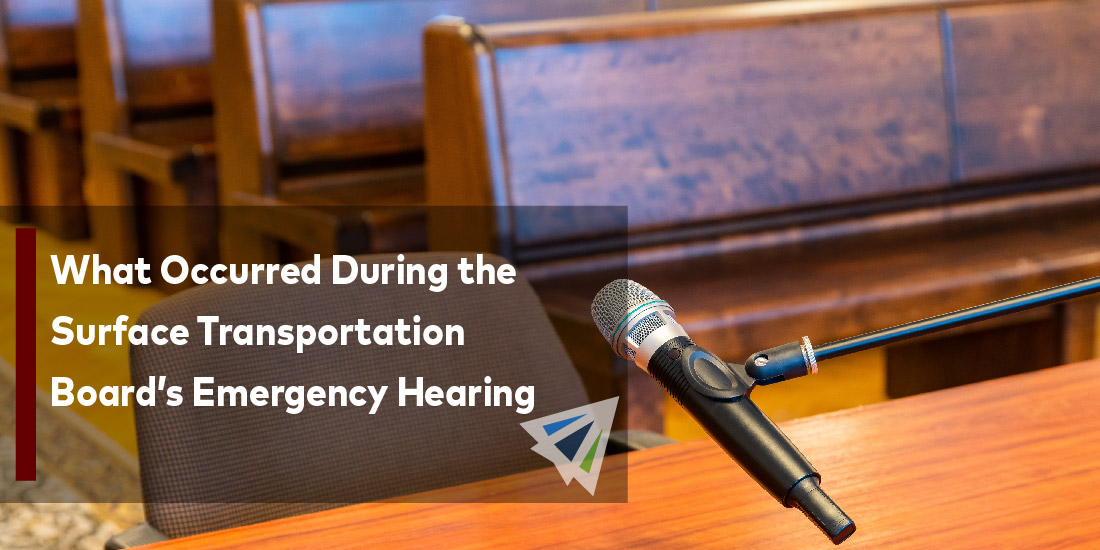What Occurred During the Surface Transportation Board’s Emergency Hearing
Recently, the Surface Transportation Board had an emergency hearing on April 26 and 27, where it asked executives from Union Pacific, BNSF, CSX and Norfolk Southern to attend and share their short and long-term plans to restore service. This comes after long delays and labor shortages have caused some declines in rail service.
Many railroads noted that it will take some time (months) to clear congestion due to higher volumes, labor constraints, and the time it takes to onboard workers – Supply Chain Dive.
What the Railroads Have to Say
Union Pacific
UP is planning on removing between 2-4 percent of its own cars from the network, as it asks shippers with the highest impact on its network, to voluntarily reduce inventory. UP stated, if shippers do not voluntarily reduce inventory, it may begin to meter traffic. UP limited traffic last summer for a week into its Global IV gateway in Chicago, to help clear up congestion.
Additionally, UP is adding 100 locomotives as well and plans to hire 1,400 train service employees this year.
BNSF
Just like UP, BNSF is asking shippers to voluntarily reduce inventory, as the railroad will temporarily reduce the number of cars on its network by 2 percent, Supply Chain Dive reports.
Furthermore, BNSF has plans to add 100 locomotives in the coming weeks, and add 1,700 train and engine employees this year, Supply Chain Dive reports.
CSX
CSX is focusing on improving its labor force, as CSX remains firm that it is not short of locomotives, or any physical infrastructure to be able to perform. The one thing CSX is short of right now is engineers and conductors, the Journal of Commerce reports.
CSX expects its employment numbers to return to pre-pandemic levels around the third quarter this year.
Norfolk Southern
One thing NS is doing is applying technology to lower car dwell and increasing collaboration between departments to enhance performance and improve cycle times at terminals, the Supply Chain Dive reports.
Like other railroads, NS is improving its hiring process and has increased pay for trainees, in hopes to add more workers to its network.
What Shippers and Others Have to Say
Shippers have been adamant that there have been major declines in rail service as of late, which pushed regulators to have that emergency hearing at the end of April, discussing the delays and labor constraints that have threatened to hinder operations.
One of the major problems in rail right now that shippers have been concerned about is deteriorating service that can add more chaos to the supply chain. According to Supply Chain Dive, chemical companies, agriculture producers, and more that rely on rail to move their goods, say that unfilled orders, missed switches and other delays, have caused them more fees and higher costs.
Furthermore, shippers have prepared a list of solutions to present and ask the board on: service assurance plans; more data around the first and last mile; and for the board to adopt reciprocal switching rules, Supply Chain Dive stated.
Going Forward
Declines in rail service in recent months, have impacted everyone, shippers, railroads, the STB, consumers, the agriculture industry, and more. While changes will take time, the STB emergency hearing provide a good discussion for those involved, while providing possible solutions on how to steer rail service in a faster and improved direction.
If you would like more information regarding this topic, contact our team at InterlogUSA and we will be happy to assist you on any questions or comments you may have! In addition, we have our weekly market updates that can provide you with relevant freight news, updates, developments across the industry, and more.
